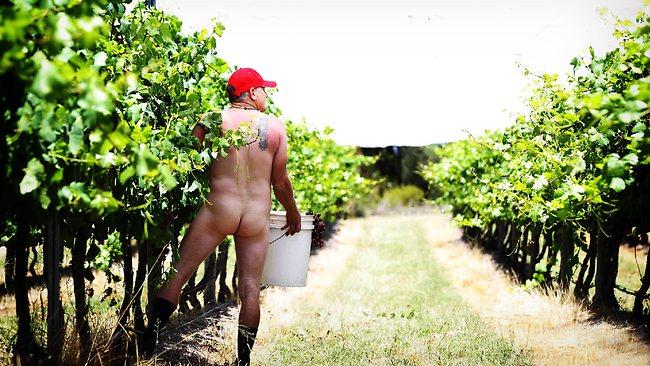Full moon over grape harvest
ECCENTRIC Queensland winemaker Mike Hayes will harvest some of his grapes in the nude during a full moon to revive an ancient winemaking ritual.

News
Don't miss out on the headlines from News. Followed categories will be added to My News.
ECCENTRIC Queensland winemaker Mike Hayes will harvest some of his grapes in the nude during a full moon to revive an ancient winemaking ritual.
Mr Hayes, 48, from Symphony Hill Wines on the Granite Belt, said he was studying 4000-year-old winemaking techniques as part of a Churchill Fellowship.
He said the first records of naked harvesting and naked crushing of the fruit with bare feet came from Georgia, an independent state of the former Soviet Union and the birthplace of winemaking.
"I don't know if it will work, but I'm certainly going to give it a shot," he said. "The ancients believed the moon drew energy from the grapes and goodness from the soil - just as the moon pulls the tides."
"I know some people will think I am mad with a double D.
"However, many cultures study the lunar cycles and engage in all kinds of mystical rites before harvest."
Hayes says there is a certain logic to bare-cheek winemaking.
"Clothing made from animal hides would no doubt contain bacteria that would taint the winemaking process."
He said the bible also records Noah running naked through a vineyard.
Hayes will begin by harvesting gewurztraminer, an aromatic white variety in March, and follow up in April with a nude harvest of his nebbiolo, the Italian red blockbuster.
For added authenticity Hayes will allow the juice to ferment slowly in clay amphopra pots he will bury underground.
"There will be no preservatives or additives whatsoever."
Mr Hayes has bagged a haul of gold medals and Symphony Hill was this year upgraded to a five-star winery by Australian wine guru James Halliday.
Hayes recently completed his masters of winemaking in alternative grape varieties.
He trialled 60 different rare grape varieties.
As part of his Churchill Fellowship he will travel to Italy, Spain, Portugal and France to study so-called autochthonous grape varieties, those "sprung from the earth" or indigenous to a region.

